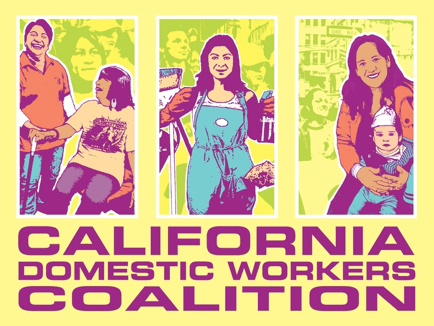My name is Teresita “Terry” Villasenor, and I am a worker leader from the Pilipino Workers Center (PWC), based in Los Angeles. I work as a full-time caregiver for a senior client and his wife in their family home. I work in shifts between 12 and 24 hours a day and support my client in all of his daily needs and favorite activities.
I prepare my client and his wife’s meals and look after them each day. I bring my client to his doctor’s appointments and assist him in taking his medications. I go with him anywhere he goes. I would even take the same art classes he is taking so that I can assist him in painting and stone carving.
As a caregiver, I thought at first that I had 1 boss, my client, but in reality, I work for 4 people. The client, his wife and I also answer to their son in law and daughter. So, I am more than a caregiver, I am also a family attendant, a secretary, a cook, etc. I am a one-woman army. My work is important and valuable, and I organize to ensure that my job receives the dignity and respect it deserves.
Before I joined PWC, I did not know that I had rights. I was not aware that caregivers were even included in the laws or that we even had labor protections. Before I learned about my rights, I worked as a live-in caregiver for 24hrs a day, with no overtime pay, no paid time off, and no sick leave.
I felt trapped. I knew in my heart that there was something wrong with that picture, that I was being abused and exploited. But I had no idea how to effectively assert my rights as a domestic worker. I thought that I could not do anything about my situation because of my immigration status then. And I also feared that I might lose my only source of income. What will happen to me and my family if I lose my job? And even if I wanted to stand up for my rights, I had no clue how to begin the fight. I did not know the proper channels to navigate.
Through the Pilipino Worker Center, I was able to understand my rights. I learned that I had workers rights, regardless of my immigration status. I had access to resources and tools that boosted my morale, and I was empowered to speak up and influence other people to do the same. I found my voice. And I knew that together with other domestic workers and our allies, we can be heard.
